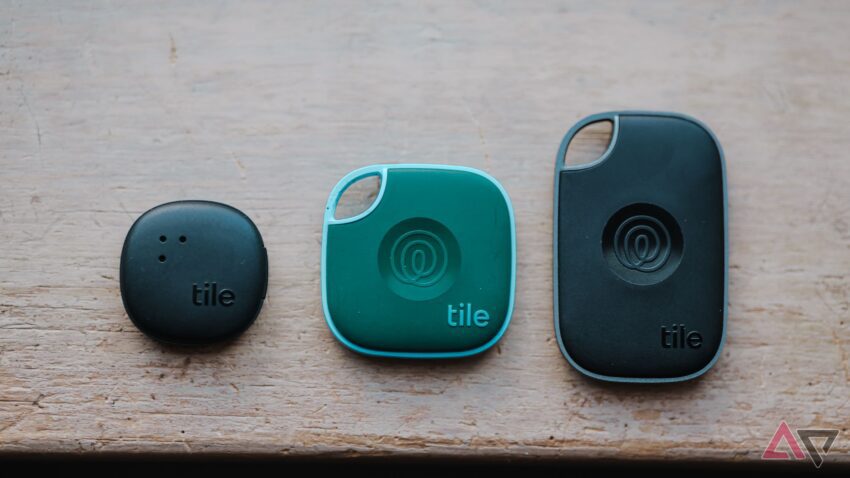
tile trackers have a massive security flaw Recent findings have revealed significant security vulnerabilities in Tile trackers, raising serious privacy concerns for users worldwide.
tile trackers have a massive security flaw
Overview of Tile Trackers
Tile is a Bluetooth tracking system that has gained immense popularity, boasting over 88 million users globally. The technology allows individuals to locate misplaced items such as keys, wallets, and bags through a smartphone application. The convenience of this tracking system has made it a staple for many, but the recent revelations about its security flaws have cast a shadow over its reliability and safety.
Discovery of Security Flaws
Researchers from Georgia Tech have uncovered alarming vulnerabilities in Tile’s technology. According to a report from Wired, these flaws allow anyone with the right tools to track Tile devices without the owner’s consent. This oversight is particularly concerning given the widespread use of Tile trackers, which are integrated into various everyday items.
How the Flaw Works
The security flaw primarily stems from the way Tile communicates with its network. The Bluetooth signals emitted by Tile trackers can be intercepted, allowing unauthorized users to determine the location of these devices. This means that individuals can track not only their belongings but also the movements of others who are using Tile trackers. The implications of this are profound, as it essentially transforms the Tile network into a potential global surveillance system.
Technical Details
The researchers at Georgia Tech conducted a thorough analysis of Tile’s communication protocols. They found that the data transmitted between the Tile devices and the Tile app is unencrypted. This lack of encryption means that anyone with basic technical skills can intercept the signals and track the devices in real-time. The researchers emphasized that this vulnerability is not just a minor oversight; it represents a fundamental flaw in the design of the system.
Implications for Users
The ramifications of these security flaws are significant for Tile users. The primary concern is the potential for unauthorized tracking, which raises serious privacy issues. Users may unknowingly expose their location and habits to malicious actors, leading to potential stalking or harassment.
Privacy Concerns
Privacy advocates have expressed alarm over the findings. The ability for anyone to track a Tile device without the owner’s knowledge undermines the very purpose of the product, which is to help users locate their belongings securely. This breach of privacy could deter users from utilizing Tile trackers, ultimately impacting the company’s reputation and user base.
Potential for Abuse
Moreover, the potential for abuse is significant. Malicious actors could exploit this vulnerability to track individuals without their consent, leading to various forms of harassment or stalking. The implications extend beyond personal safety; they also touch on broader societal concerns about surveillance and the erosion of privacy in the digital age.
Company Response
In light of these findings, Tile has been urged to address the security flaws promptly. The company has acknowledged the report and stated that it is reviewing its security protocols. However, the timeline for implementing any changes remains unclear. Users are left in a precarious position, uncertain about whether their data and privacy are adequately protected.
Previous Security Measures
Tile has previously implemented security measures to protect user data, such as the ability to remotely disable a lost Tile. However, these measures do not address the fundamental issue of unencrypted communication. The company must take more comprehensive steps to ensure that user data is secure and that the risk of unauthorized tracking is minimized.
Future Security Enhancements
Experts recommend that Tile consider adopting end-to-end encryption for its communication protocols. This would ensure that only authorized users can access the location data of Tile devices. Additionally, implementing regular security audits and updates could help identify and mitigate potential vulnerabilities before they are exploited.
Stakeholder Reactions
The revelation of these security flaws has elicited a range of reactions from stakeholders, including users, privacy advocates, and industry experts.
User Concerns
Many users have expressed their concerns on social media platforms, questioning the safety of using Tile trackers. Some have indicated that they will reconsider their use of the product until the company addresses these vulnerabilities. The trust that users place in technology products is crucial, and any breach of that trust can have lasting consequences.
Privacy Advocates
Privacy advocates have called for greater accountability from companies like Tile. They argue that technology firms must prioritize user privacy and security in their product designs. The lack of encryption in Tile’s communication protocols is seen as a glaring oversight that could have been avoided with proper security measures in place.
Industry Experts
Industry experts have weighed in on the situation, emphasizing the need for companies to adopt a proactive approach to security. They point out that as technology evolves, so do the methods used by malicious actors. Companies must stay ahead of potential threats by implementing robust security measures and continuously updating their systems.
Broader Context of Security in Technology
The security flaws discovered in Tile trackers are part of a larger conversation about privacy and security in technology. As more devices become interconnected through the Internet of Things (IoT), the potential for vulnerabilities increases. Users must be aware of the risks associated with these technologies and take steps to protect their privacy.
Trends in IoT Security
The IoT landscape is rapidly evolving, and with it comes the need for enhanced security measures. Many companies are beginning to recognize the importance of implementing strong security protocols to protect user data. However, as the Tile situation illustrates, there is still much work to be done.
Consumer Awareness
Consumers must also play a role in safeguarding their privacy. Being informed about the potential risks associated with technology products can empower users to make better choices. This includes understanding the security measures in place and advocating for improvements when necessary.
Conclusion
The discovery of significant security flaws in Tile trackers poses serious privacy concerns for users worldwide. The ability for unauthorized individuals to track Tile devices without consent highlights the urgent need for enhanced security measures in technology products. As Tile navigates this crisis, it must prioritize user privacy and take decisive action to address these vulnerabilities. The implications of this situation extend beyond Tile, serving as a reminder of the importance of security in an increasingly interconnected world.
Source: Original report
Was this helpful?
Last Modified: September 30, 2025 at 2:48 am
0 views














